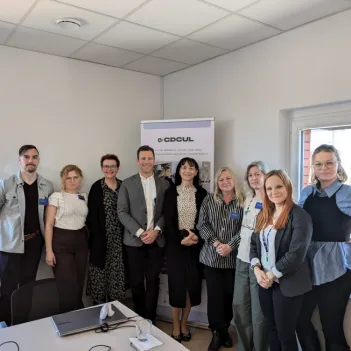CDCUL
Consumer Demand for Circular Urban Living: Insights from Sweden, Slovenia, and The Netherlands

© CDCUL
- Category
- Project
- Call
- DUT Call 2022
- Duration
- –
- Project coordinator
- RISE, Research Institutes of Sweden
In recent decades, average household size in Europe and most countries around the world has declined. More and more people living alone, including over 36 percent of Europeans. This is very resource in-efficient way to live and is slowing progress toward climate goals.
This project proposes shared-access residential spaces like shared kitchens, shared office spaces, and shared workshops as one pathway to reduce resource consumption without reducing household's access to functional space. Integrating such spaces may allow individuals to live in small private units while sharing access to spaces that might not have otherwise been used intensively. The CDCUL (Consumer Demand for Circular Urban Living) project tests individuals' willingness to to share and willingness to pay for these spaces with a discrete choice experiment (as part of digital survey) sent to over 1,000 adults in the Netherlands, Slovenia, and Sweden. We follow up these results with focus groups and model floor plans to help clarify solutions.
We hope and expect the project to reveal customer segments for shared-access spaces and offer specific design and programming guidance to architects, policy makers, and housing developers, who are all part of the project as well.
The Netherlands
Slovenia
Sweden
Arkitekterna Krook & Tjäder Göteborg AB, MKB Fastighets AB, Universiteit Maastricht, Zavod Za Gradbenistvo Slovenije
Gospodarska Zbornica Slovenije, Riksbyggen Ekonomisk Forening, Zavod Tigr
Interview: Sharing spaces as a housing alternative in Sweden, the Netherlands and Slovenia
Connect to YouTube?
To play this video, a connection to YouTube will be established, and personal data will be transmitted to YouTube.
Contact
Robert Boyer
robert.boyer@ri.se